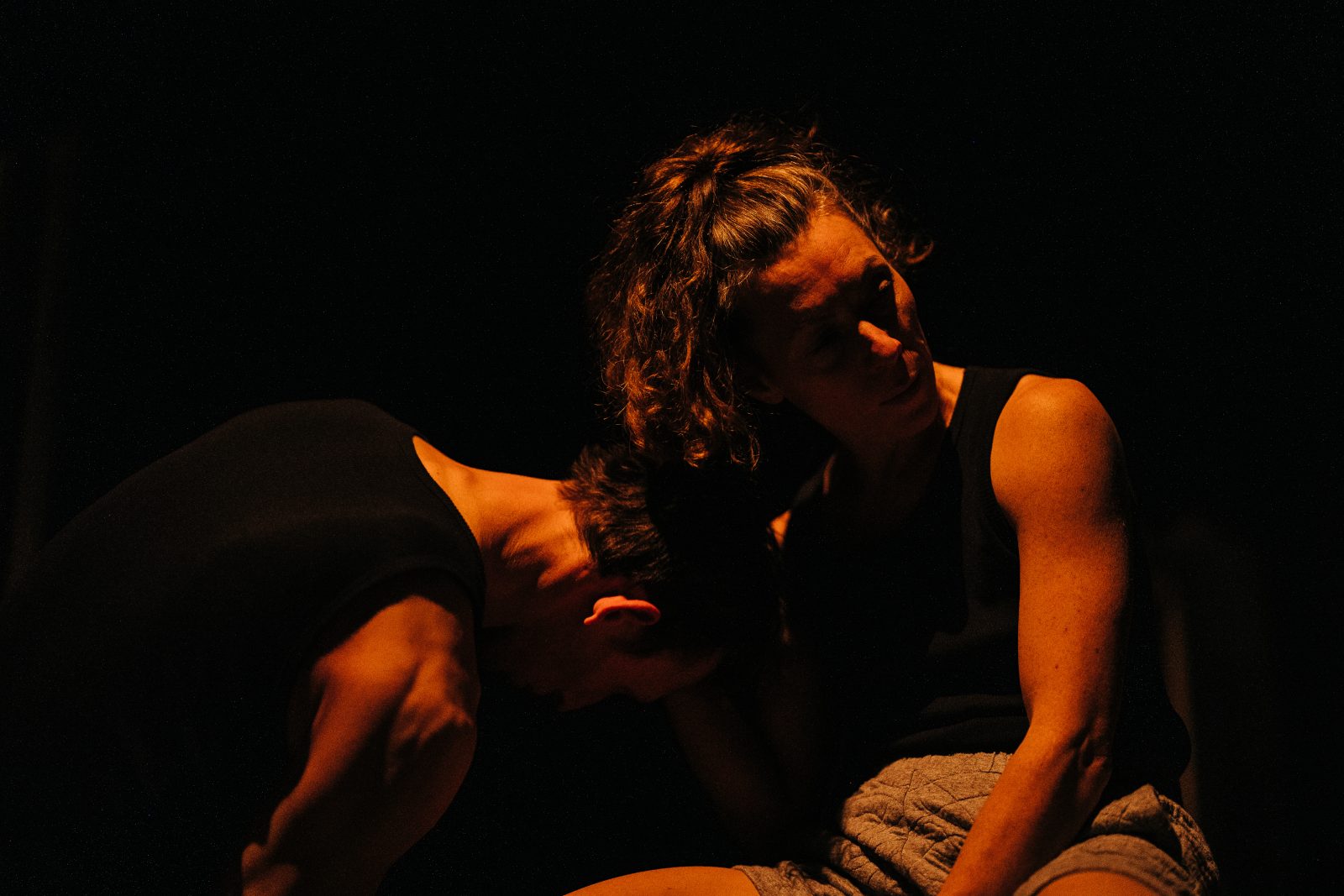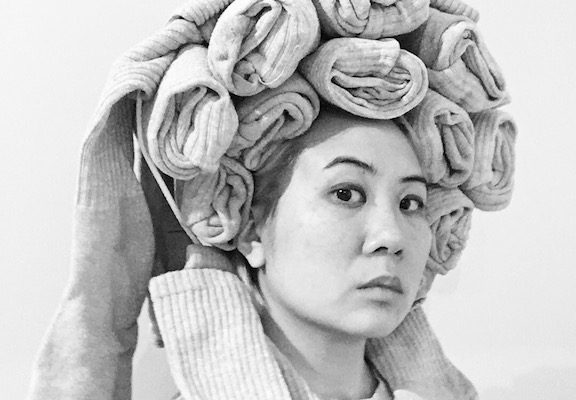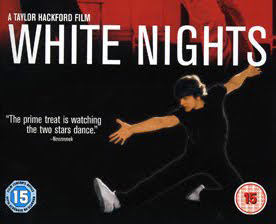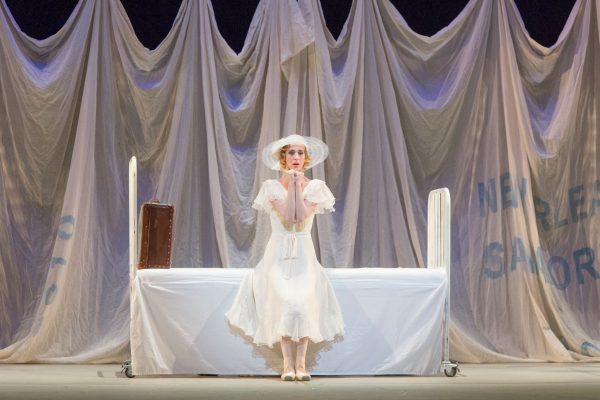We All Fall Down Interdisciplinary Creations’ Because You Never Asked ran from April 19 to 22 at MAI |Montréal, arts interculturels in Montreal.
Because You Never Asked documents a prescient moment of intergenerational connection. The interdisciplinary work is based on relatively recent conversations between director and composer Roger White and his recently deceased grandmother, Dr. Marianna (Goldmann) Clark. The 70-minute piece combines fragments mined from his grandmother’s diaries and letters with what I feel becomes the centrepiece: the recorded conversations from her 90s with her grandson. She talks about a life lived under the Nazi regime and a world just prior to that. These conversations are what fuelled the imagination of the show’s choreographer, Helen Simard, who is co-artistic director of We All Fall Down and married to White.
In a time when artists are searching to create work with the potential to affect social and political change, this arresting new creation probes memory in an abstraction that leaves plenty of room for audiences to dive deeply into their own histories. The show includes excellent performances by David Albert-Toth, Marie Lévêque, Brianna Lombardo and Maxine Segalowitz.
Ultimately, Because You Never Asked is about intersections. Clark was born into a mixed Christian-Jewish family in Hamburg, Germany. After the passing of the National Socialists’ Nuremberg Race Laws in 1935, nationalism brutally emerged as fascism. Clark’s parents’ marriage was deemed illegal and their citizenship revoked, and in 1939 they fled to England.
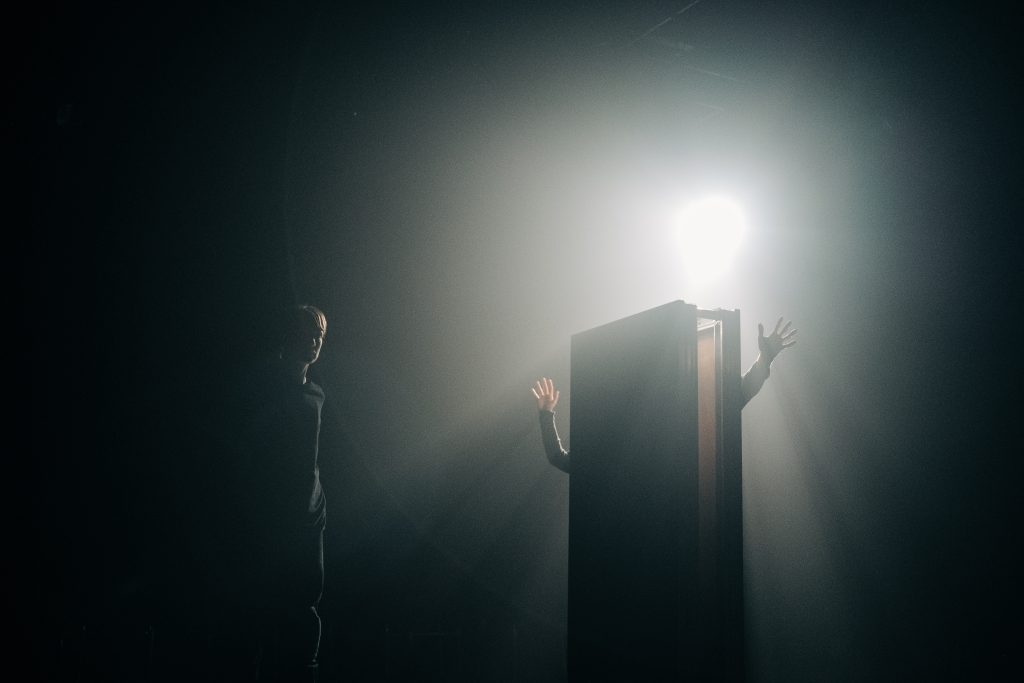
In the soundscape, audiences are privy to Clark’s surprisingly matter-of-fact recollections of events no longer aberrations. Her factual anecdotes relate various incidents with a calm remove, an observant voice that is not scared. What is striking is how Clark seems to transcend the terror of the time and the overt displays of antisemitism. Her recollections include: being in the stadium at the 1936 Berlin Olympics, seeing Hitler, her friendship with Hans Leipelt of the White Rose (a resistance group that published and distributed leaflets denouncing the state dictatorship) as well as stories about summer camp, cherry season and a moment in 1933 when she relates her parent’s decision “to get the Jewishness out of the family.” That period in her life, lasting six to eight years, is the content of White’s exploration. The rising musical score and Clark’s audio recording seem to be competing forces, particularly in the first half of the show; at times, the sound mix makes it difficult to understand what she’s saying.
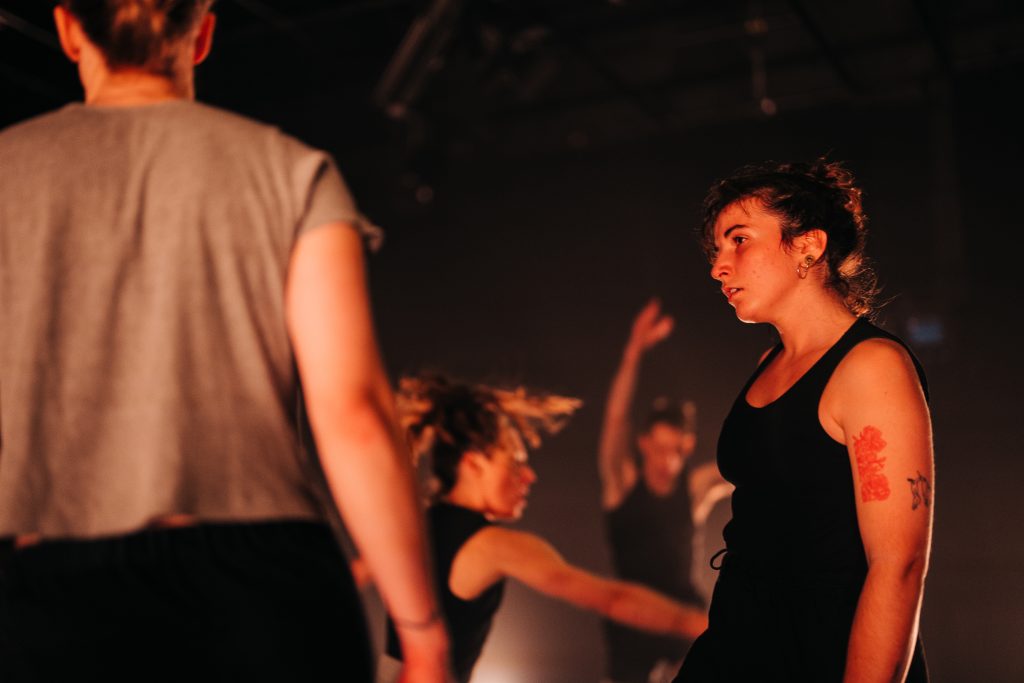
When Clark and her grandson met to record this audio, they shared tea and bananas while stories emerged that now pivot between humour and darkness.. The night I saw the performance, pockets of the audience erupted in laughter over their exchange. White, who wasn’t raised Jewish, knew there was some Jewish thread in his lineage. Through his encounters with his grandmother, he began to gain better insight into a life of which he had little prior knowledge. At one point, he asks why he never knew any of these stories. Clark’s response gives us the meaning behind the title.
Audience members are seated opposite one another in the MAI|Montréal, arts interculturels gallery space. What distinguishes the piece is how carefully and keenly the dancers seem to be listening in the space, attentive to what’s around them. The clarity of the performers’ focus registers. There’s a beautiful simplicity to the movement. They skip, run and slide across the space, highly suggestive of the oppositional forces at play during the Nazi era. There’s a fragility and an innocence to these dancing bodies; they seem to float in the movement.
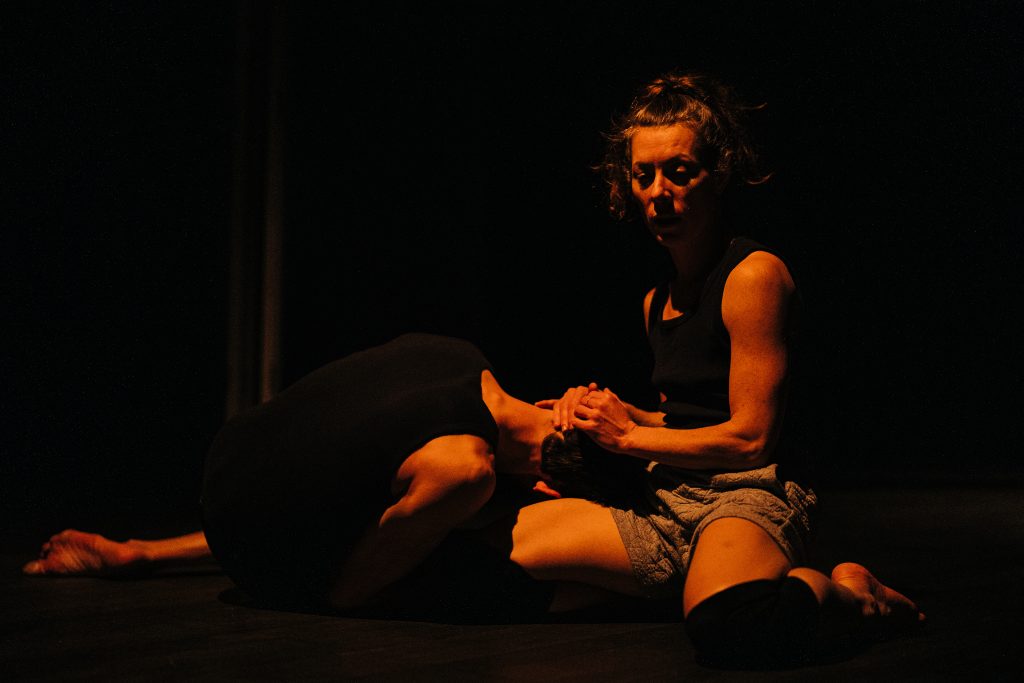
Displacement figures prominently in the piece. The gallery’s huge four concrete pillars obstruct views of the performance at times, but that seems thematically accurate, highlighting what we can or cannot see. Likewise, lighting decisions by designer Tiffanie Boffa beautifully complement the shifts in tone, with her cues controlling what’s revealed. At many points, the performers seem distanced from one another, near but never connecting physically. There’s a macabre section where the performers are swallowed by their oversized trench coats (costumes by Tricia Crivellaro) and manifest as a chorus of spirits – hovering, evoking totem-like figures of the dead. These ghostly incarnations call to mind memories of forgotten souls and loved ones.
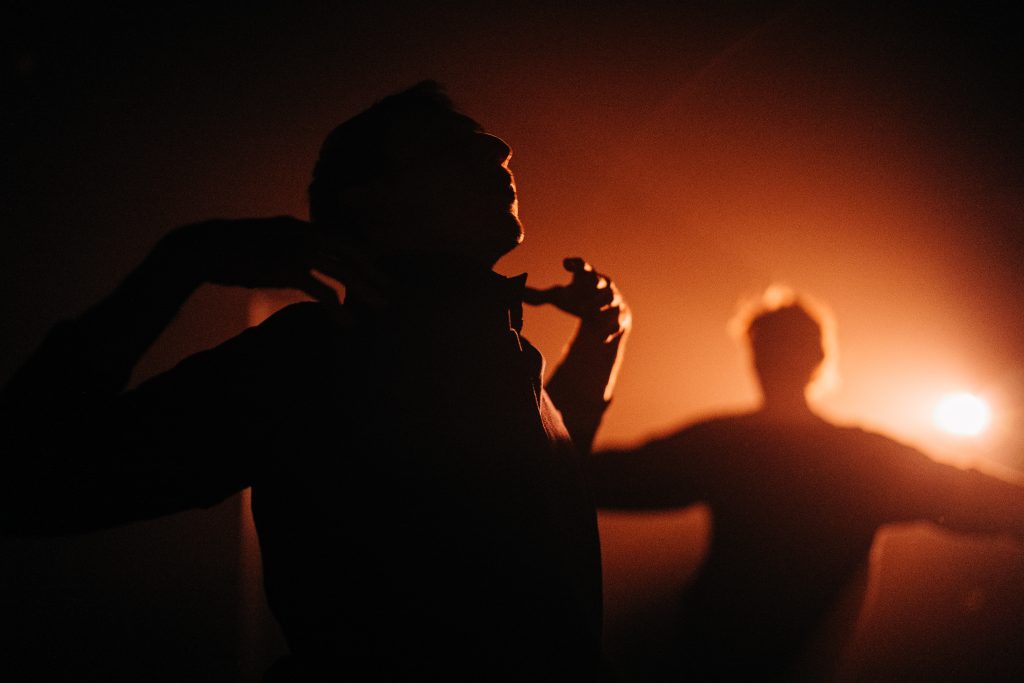
On occasion, the performers sidle perilously close to the audience. It’s an effective, powerful method to break a sense of remove, that comfortable perception of distance while watching a show. One wrenching moment came late in the performance for me, when Albert-Toth slid up against the legs of the woman seated next to me. His seated body hunched, I was able to see the slightest tilt of his bent head, a fleeting twitch in his neck. The jolt of this haunting, vulnerable presence in such close proximity demanded that I not look away. The anxieties that built up in the piece now concretely inhabit a place in our psyche.
Because You Never Asked can be interpreted as a rallying cry of sorts against hate, not just the hatred and violence loosed by Nazi Germany but the hatred of our current realities. But it’s also a reminder to keep those close to us ever closer, to embrace the wisdom in our midst and to be bold and ask questions that shed light on our identity.
Dance Media Group strengthens the dance sector through dialogue. Can you help us sustain national, accessible dance coverage? Your contribution supports writers, illustrators, photographers and dancers as they tell their own stories. Dance Media Group is a charitable non-profit organization publishing The Dance Current in print and online.

